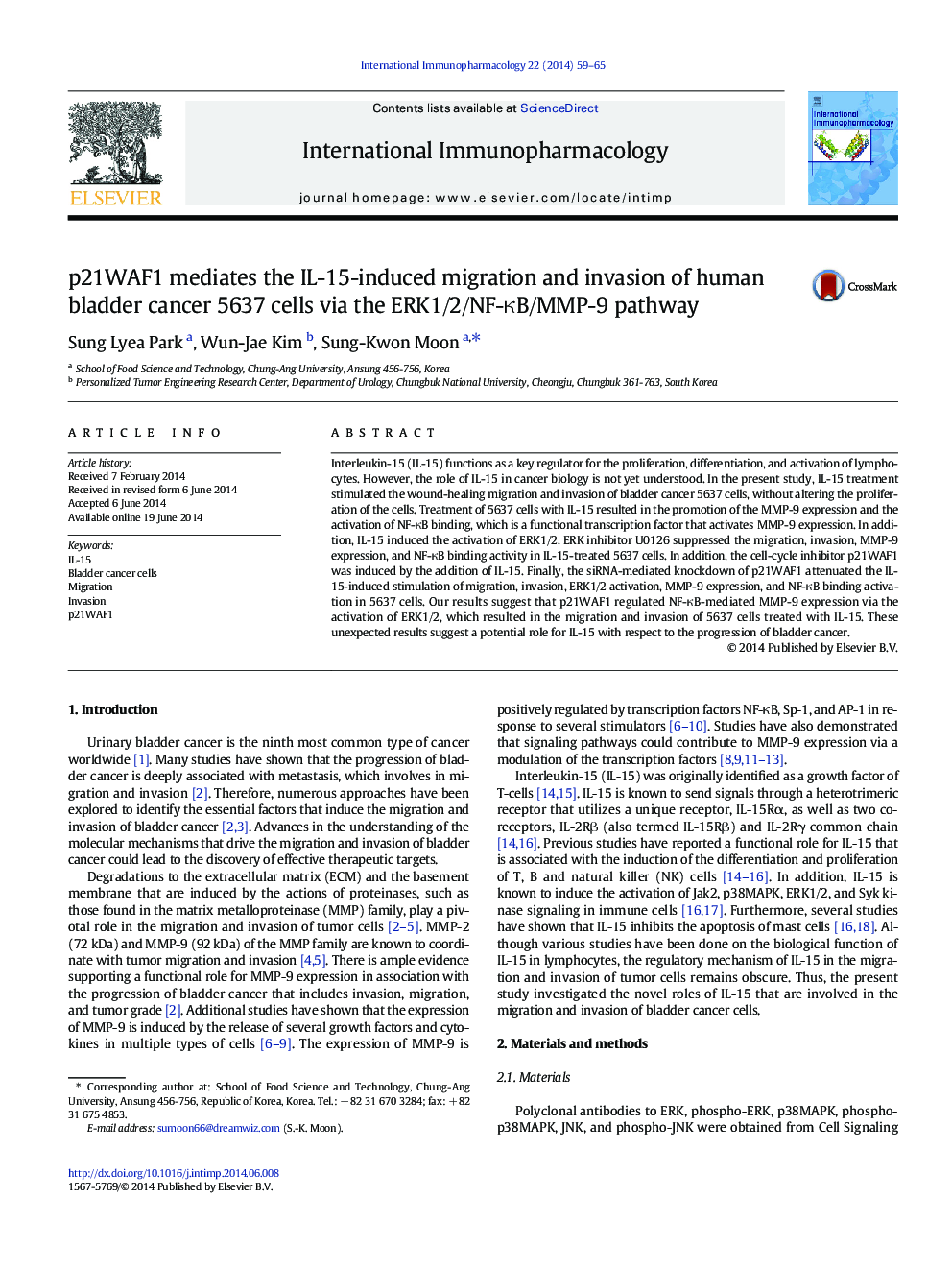| Article ID | Journal | Published Year | Pages | File Type |
|---|---|---|---|---|
| 2540615 | International Immunopharmacology | 2014 | 7 Pages |
•IL-15 induces migration and invasion of bladder cancer cells via NF-κB/MMP-9 pathway.•ERK1/2 is indispensible for the IL-15-induced cell migration and invasion.•p21WAF1 is involved in IL-15-induced migration and invasion of bladder cancer cells.
Interleukin-15 (IL-15) functions as a key regulator for the proliferation, differentiation, and activation of lymphocytes. However, the role of IL-15 in cancer biology is not yet understood. In the present study, IL-15 treatment stimulated the wound-healing migration and invasion of bladder cancer 5637 cells, without altering the proliferation of the cells. Treatment of 5637 cells with IL-15 resulted in the promotion of the MMP-9 expression and the activation of NF-κB binding, which is a functional transcription factor that activates MMP-9 expression. In addition, IL-15 induced the activation of ERK1/2. ERK inhibitor U0126 suppressed the migration, invasion, MMP-9 expression, and NF-κB binding activity in IL-15-treated 5637 cells. In addition, the cell-cycle inhibitor p21WAF1 was induced by the addition of IL-15. Finally, the siRNA-mediated knockdown of p21WAF1 attenuated the IL-15-induced stimulation of migration, invasion, ERK1/2 activation, MMP-9 expression, and NF-κB binding activation in 5637 cells. Our results suggest that p21WAF1 regulated NF-κB-mediated MMP-9 expression via the activation of ERK1/2, which resulted in the migration and invasion of 5637 cells treated with IL-15. These unexpected results suggest a potential role for IL-15 with respect to the progression of bladder cancer.
